Minding your PQs: What's Question Time in Parliament and why should you care?
After the Singapore Parliament posted on Facebook recently about what's involved in Question Time, CNA delves deeper into how the session works and what MPs do with answers to the issues they ask about.
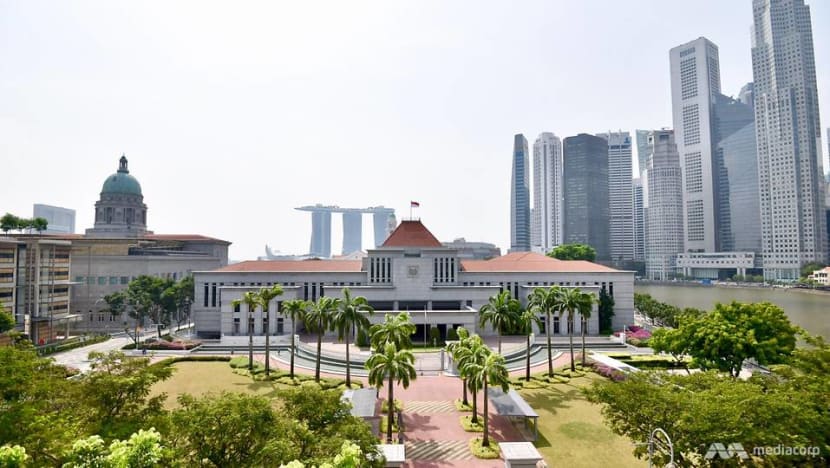
Parliament House, Singapore. (Photo: Hanidah Amin)
SINGAPORE: At the first sessions of Parliament after Singapore gained independence, four months after Aug 9, 1965, survival was the theme.
Changes to the Constitution were made and dozens of Bills passed – including the Republic of Singapore Independence Act, which spelt out the legislative nuts and bolts of Singapore’s sovereignty.
But there was also time, some days into the fiery speeches and urgent debates, to address questions about the state of traffic lights at a particular road junction, hardships faced by taxi drivers, and ask when water and electricity would be supplied to certain kampungs.
Those were some of the first parliamentary questions (PQs) raised in independent Singapore’s Parliament on Dec 17, 1965, and to those who follow parliamentary proceedings here, the topics may seem oddly familiar.
In the last sitting of the House on Apr 5, there were questions on Singapore’s vaccination programme and climate issues, but also some on high-rise littering, the feeding of pigeons and the clearing of fallen leaves.
Municipal matters and issues of national importance often run side by side when it comes to Question Time sessions in the House – when PQs are raised by Members of Parliament.
WHERE DO PQS COME FROM?
Where do these questions come from? MPs told CNA that they are generally inspired by residents they speak to or sometimes from dialogue sessions.
“The questions are really all from the ground, I don’t have this magic power to churn out so many questions,” said Mr Louis Ng (Nee Soon GRC – PAP), who has filed 87 questions so far in his latest term in Parliament since being re-elected in July 2020.
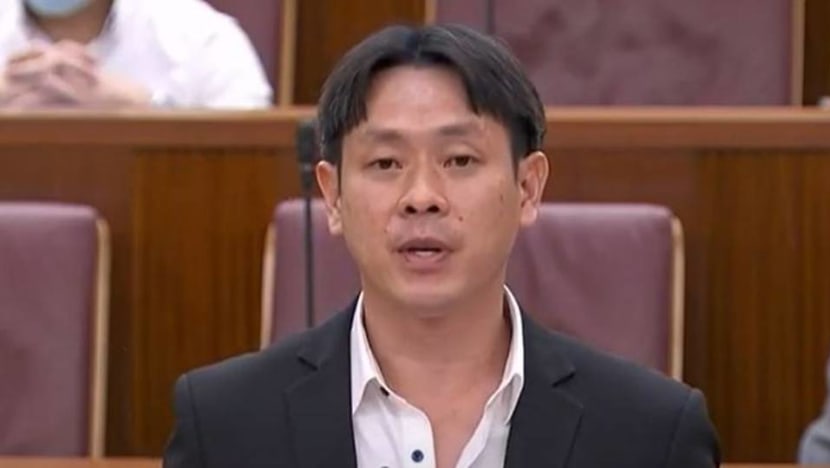
Mr Gan Thiam Poh (Ang Mo Kio GRC - PAP) said that the questions he asks are derived from talking to residents during house visits, and walking the estates in his ward.
For example, on Apr 5, he asked about the number of drivers caught speeding along five roads in his constituency in the past year and a half, and if there are measures to tackle the speeding. This came after he received many complaints from residents and feedback from grassroots leaders.
But although mainly from his residents, not all the questions are constituency issues. Mr Gan has also raised recently questions on housing policy, while Mr Ng has asked about animal welfare issues, humanitarian aid to Myanmar and In-Vitro Fertilisation treatments.
Mr Leon Perera (Aljunied GRC – WP) said that his questions come from constituents, but also come from the news or research he has read.
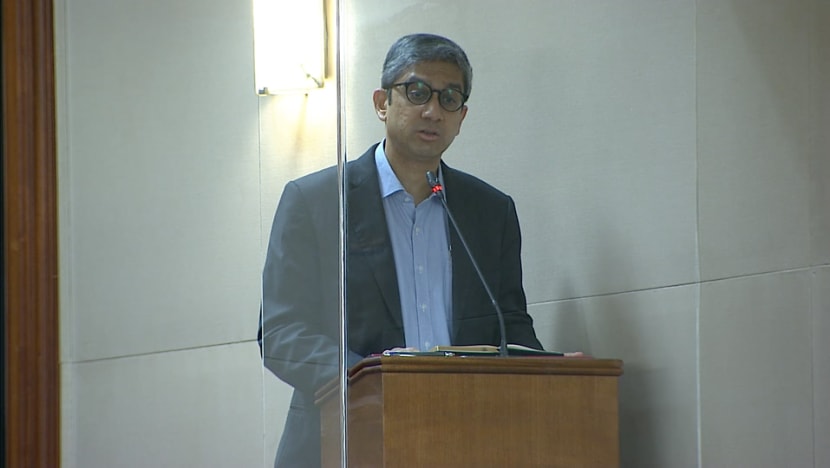
“Generally it would be a concern or area of policy interest triggered by recent news, research I have come across, conversations with stakeholders I have had or chats with constituents who have conveyed specific concerns to me,” he said.
“Some of my PQs are formulated based on global policy research and innovative or experimental policies being tested in other countries.”
What both Mr Gan and Mr Ng, who file more PQs on average, have in common is that they said they have more questions than they can file in Parliament.
MPs can each submit up to five questions a sitting – which can be for oral or written answers. There can be a maximum of three questions for oral answer, and these are usually addressed at the start of the parliamentary sitting during Question Time.
ORDER MATTERS
At 1.5 hours, Question Time in the Singapore Parliament is longer than in other parliaments – it’s 45 minutes in Canada and an hour in the UK House of Commons and in India’s Lok Sabha.
But that's still not enough for Singapore MPs - there are usually more questions than can be answered in the allotted time. These can be rolled over to the next day of the sitting, or be answered in written form.
Mr Gan said that he sometimes sends the questions directly to the relevant ministry to get them answered, while Mr Ng said that he will usually start off with five questions, but not file any for the next session so that he can roll over the “essential issues that really should be debated”.
This is because supplementary questions can be asked for the questions answered orally in Parliament – and MPs can then seek clarification, and the ensuing exchange can be akin to a debate.
“So those that I really feel we need to debate, I give room to keep postponing the PQs,” said Mr Ng.
So, while all PQs will be answered in either oral or written form, the order in which they are presented in the House is important.
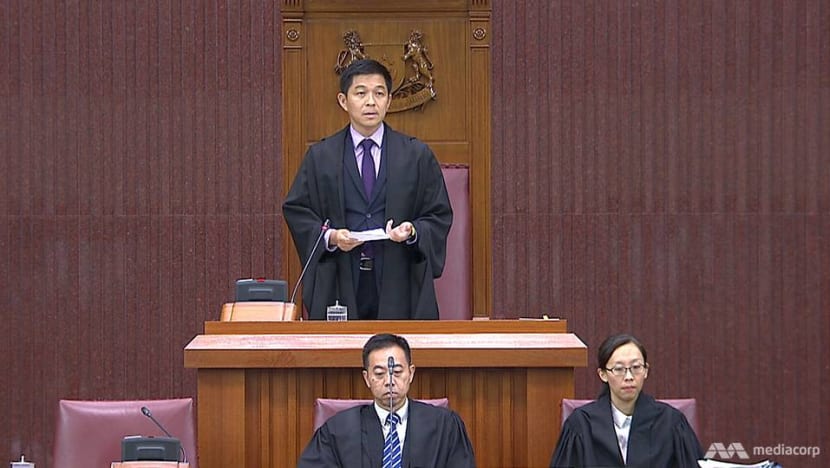
Speaker Tan Chuan-Jin, who presides over the sittings of the House, said there’s no “strict formula” to how the questions are ordered.
“Once filed, the Parliament Secretariat and I will clear and approve the PQs to ensure they fulfil the conditions in the Standing Orders,” he said in an email response to CNA's questions.
“As Speaker, I will decide the sequence of PQs on the Order Paper for a Sitting. No strict formula is involved, other than exercising reasonable judgement.”
“MEASURED” TONE
PQs are grouped thematically and often a topic that a large number of MPs has asked about will be addressed first. On Apr 5, nine MPs filed questions about COVID-19 vaccinations, which were answered together by Senior Minister of State for Communications and Information and for Health Janil Puthucheary in the House.
Mr Tan also said: “When presiding over the Question Time during a Sitting, I will be permissive and expansive where possible to optimise productive exchanges.
“For instance, after the Minister’s verbal reply, I will let MPs continue asking Supplementary Questions (SQs) for further clarifications. I will remind both front and back benches to say more with less, so that as many MPs who wish to ask SQs can do so.”
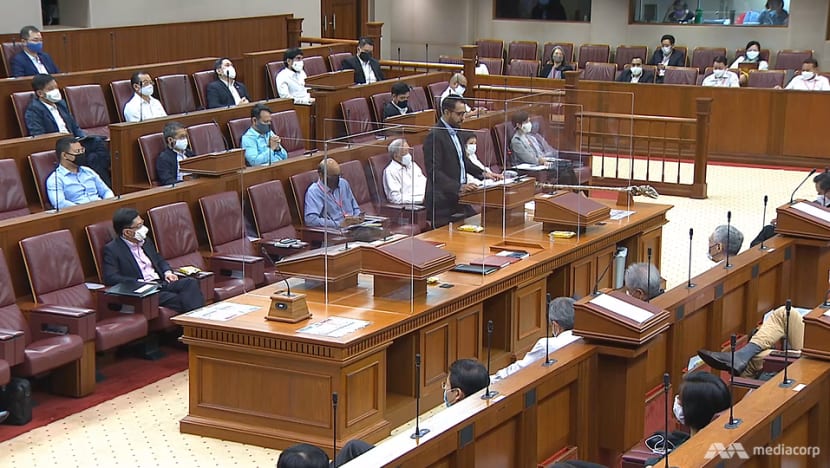
When asked how Question Time in Singapore Parliament differs from other countries with similar systems, Mr Tan said that the tone is “more measured” here.
“In some Parliaments, Question Time and debates can be very fiery and entertaining. But when you pare it down from the rhetoric, is it also as rich in substance? Or it is more to play to the gallery?” he asked.
“All sides of the House take Question Time seriously. MPs take the opportunity to not just ask probing questions, but also come up with constructive suggestions and alternatives for consideration. This process makes for better policy-making and overall governance.”
WHAT HAPPENS AFTER?
So what happens after the PQs are asked and answered?
Mr Perera said that if the PQ was from feedback from constituents, he will try to “circle back” to the resident.
“The answer can be used by us to fine-tune our broader ideas about policy, reflected in other Parliamentary interventions and things like manifesto development,” he added.
Mr Ng and Mr Gan said they will also post the questions and answers on social media. Both also said they feel that PQs can lead to changes in policy – over time.
For instance, Mr Ng recalls that he had asked about the unequal benefits provided to single mothers back in 2016 when he first became an MP. Other MPs have also asked questions on this in recent years.
In 2019, Mr Ng also filed an adjournment motion on Providing Housing for Single Unwed Parents and their Children. Housing policy for unwed parents has relaxed over the years, with the Ministry of National Development announcing last year that it will allow those aged 21 and above to buy up to a 3-room flat in a non-mature estate, in addition to resale flats.
“Sometimes there's some pessimism that change doesn't happen but I’m optimistic that it will,” Mr Ng said.
Mr Gan felt that PQs filed by MPs also constitute feedback for ministries, and thus feed into their policy reviews.
“I believe that (PQs) also form the basis for policy review … Quite often PQs raised will lead to a change in policy subsequently,” he said.
Former Nominated MP and Singapore Management University Law Professor Eugene Tan said that he is unaware of major policy changes arising from PQs, but they can provide valuable feedback to the Government.
“Certainly, what the government makes of feedback through PQs filed can make a difference to those on the ground,” he said.
“But even where policy tweaks or changes or suggestions taken on board, whether the relevant government agency acknowledges and gives credit is a separate question altogether.”
From the start of the 14th Parliament on Aug 24 last year to the sitting on Apr 5, a total of 1,432 PQs have been answered over 28 sitting days, according to the Office of the Clerk of Parliament.
The next sitting of Parliament falls on Monday, May 10 and can be viewed live on YouTube. Clips are also available on the CNA.asia website.














